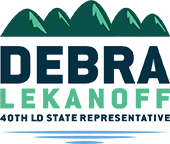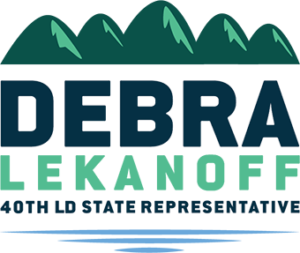A Special Edition of Fantastic Friday
Dear Friends,
This week on Fantastic Friday, I want to take some time and focus in on a single issue that is impacting our Indigenous communities at an astronomical level.
The ongoing opioid epidemic has had devastating impacts on communities across the country, and our American Indian and Alaska Native (AI/AN) communities have been hit particularly hard. Nowhere is that impact more apparent than right here in Washington.
New data has shown that Washington had the biggest increase in drug overdose deaths of any state in the most recent reporting period, jumping up by 24%. This was by far the worst increase in the nation, and warrants additional, immediate action on the ground here in Washington.
Additionally, the death rate from drug overdose among the AI/AN population in Washington was 43.1 per 100,000 people in 2016 – almost 3 times the national average.

In recent weeks, we have lost too many of our tribal members. In Lummi and Tulalip, we have said goodbye to a number of individuals who lost their lives to drug overdoses amidst this ongoing epidemic.
My heart and condolences go out to those families who are grieving – and I want you to know that this is a priority of mine as we look to the future.
This is a health crisis that needs our attention now, and I am happy to say there are a great number of incredible, dedicated individuals hard at work finding the best path forward to protect our Native brothers and sisters.
Over the summer, the Northwest Portland Area Indian Health Board (NPAIHB) hosted the National Tribal Opioid at the Tulalip Resort, bringing together experts and officials from around the Pacific Northwest to map out the path forward. The Summit recognized that Washington state, and our nation are facing an opioid and fentanyl crisis and it will take all governing bodies working together to solve it.
It was incredible to hear from so many people who work tirelessly on this issue at every level of our society – from the community organizing level, all the way up to the halls of Congress. Senator Cantwell and Congressman Larsen both spoke to the Summit, sharing federal recommendations to address the crisis across both the state, and the nation.

Today, I want to take the rest of this newsletter to lay out the work that I am supporting to address this opioid and fentanyl crisis both at the community and legislative levels.
Supporting public health and the health of our communities will always be a priority of mine, and I am so thankful to stand shoulder to shoulder with so many incredible individuals in this work. We must always do everything within our power to support both the next seven generations to come, and those who are here right now.
Keep reading for more on this Fantastic Friday.
“Stay Safe, Stay Healthy”
Rep. Debra Lekanoff
What We Can Do
Now, I’d like to look ahead and discuss the next steps we ought to take in order to combat this crisis and bring necessary support to our communities.
Below is a summary of a number of things that I am working on, and a number of things that I believe we must get started here in Washington. By no means is this comprehensive, and there are so many other important pieces that need our attention.
I hope that moving forward we can begin to enact policies aimed at uplifting our communities as they work to support their loved ones, and in doing so together we can help those impacted by this ongoing tragedy.
Tribally Partnered Holistic Wellness Centers
First, we must increase funding for our tribally partnered holistic wellness centers, helping the tribally operated facilities address all levels of the crisis including: prevention, stabilization and inpatient facilities, recovery and after care services.
These centers are not just for our tribal citizens though – the Jamestown and Swinomish Tribe centers serve up to 80% non-native patients both near and within 80 miles of their center.
This is a clear way that we can support those on the ground doing the important work on the community level.
Support Expanded Services Through Partnerships
We also must support the tribes in their efforts to expand services and capacity through partnership models such as: tribe to tribe partnerships, tribes working with nonprofits, tribes and local government partnerships, and tribes and private partners.
Emphasizing and supporting this collaboration is a clear path towards getting our communities the resources they need.
Amendment to RCW for Transfer of Public Land
Another step we can take would be to transfer public land or state land to a federally recognized Washington State Tribe for the express purpose of developing a crisis stabilization and inpatient facility.
We would to ensure there is no violation of the state gifting of funds or assets issues, and help create additional treatment centers that can help those in dire need.
As we transfer this land and build additional facilities, it’s vital that we streamline the permitting process so our communities can get the help they need as soon as possible.
HCA and OSPI Provisos
Next, two provisos – one to the Washington State Health Care Authority (HCA), and the other to the Washington State Office of Superintendent of Public Instruction (OSPI).
For the HCA, we would create a Tribal Crisis Taskforce, leaning on the strength of tribal sovereignty where our tribes can declare the opioid epidemic a public health emergency, and bring the issue to the front of public discourse.
This task force would focus on how our governing bodies and urban native organizations can work together through Tribal, Congressional, Legislative and Executive branches to create the appropriate tools under their authority, and to be able to address this crisis together.
Looking to our schools, an additional potential proviso would direct OSPI to research and develop new mandatory curriculum, educating our youth in 4th, 7th, and 10th grade on the dangers of addiction and the resources available to those who need help.
The proviso to OSPI would include five pilots: 2 tribal schools, 2 public schools and 1 tribal nonprofit. The outcome can lay the groundwork for a mandatory prevention and education curriculum and activities program.
Governor’s Budget Fully Funding Drug Task Forces
Finally, as we look to the future and lay the groundwork for overcoming this opioid crisis, we must ensure that the Governor’s budget fully funds drug task forces throughout the state, and to create accountability through a third party monitoring system.
Currently, there are a number of drug task forces working diligently to keep our communities safe and healthy, and ensuring that they receive the funding they need is a surefire way to help reduce the impact of the opioid crisis.
Bringing each of these individual tools together, we can see a clear path forwards to address this awful crisis. We must always look to those around us and ask who needs our help – it is only together that we can truly thrive.
We will continue reaching our hand out to those who have fallen, and I look forward to continuing this important work in Olympia, and beyond.
Senate Committee on Indian Affairs
There is one additional thing I would like to highlight for you this week, and that is a letter that Senator Maria Cantwell sent to the Senate Committee on Indian Affairs.
In the letter, Senator Cantwell laid out the devastating impacts that the opioid epidemic continues to have on Indian Country. She requests that the committee “hold an oversight hearing to examine how the fentanyl crisis, a national emergency that has affected every part of our country, has been particularly devastating for Indian Country.”
I want to share one particular paragraph from Senator Cantwell here:
“In 2022, the Centers for Disease Control reported that American Indians and Alaska Natives had the highest drug overdose rates in both 2020 and 2021. Native Hawaiians or other Pacific Islanders experienced the largest percentage increases in drug overdose death rates from 2020 through 2021, with rates increasing by 47%. An increased presence of fentanyl in the illicit drug supply is a primary contributor to this deadly problem. In 2022, it was found that fentanyl played a role in 65% of overdose deaths nationwide. Last month, the Lummi Nation – which took a leadership role in organizing a statewide summit in Washington – lost five Tribal members in a week to suspected fentanyl overdose deaths and sadly the Lummi Nation is not alone. Native communities throughout the country continue to experience disproportionate increases in overdose deaths despite significant efforts to prevent and treat drug addiction and overdoses in their communities.”
We should all feel confident with Senator Cantwell working on our behalf in Washington, D.C., and I am thrilled that she is helping to elevate this issue in the halls of Congress. We will continue this work and always strive to help those who need it most.



